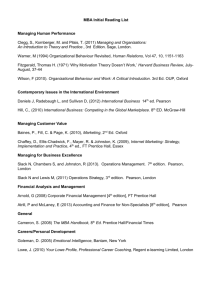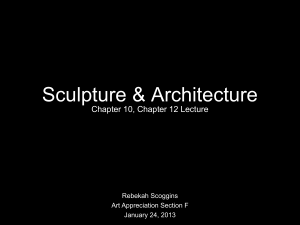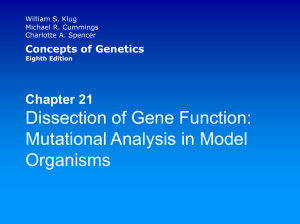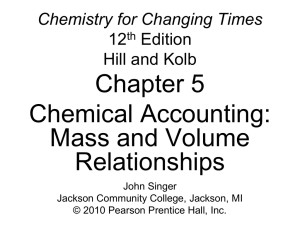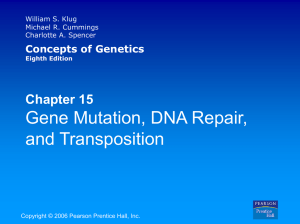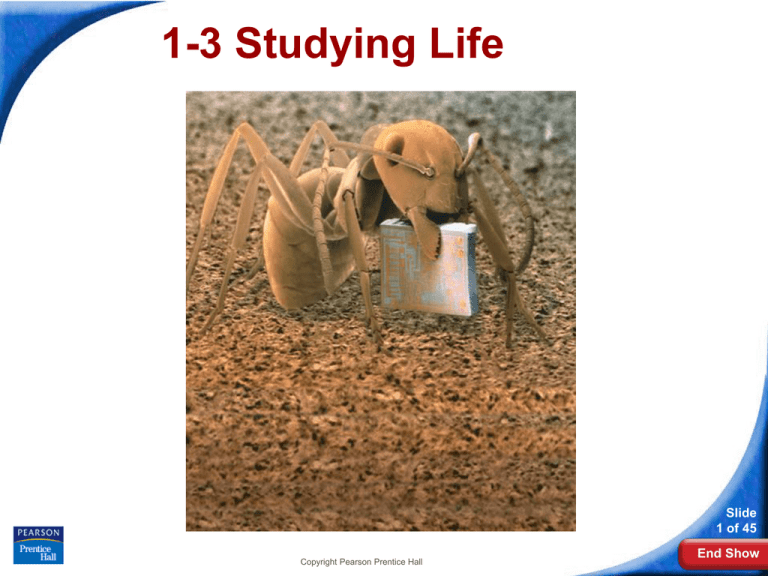
1-3 Studying Life
Slide
1 of 45
Copyright Pearson Prentice Hall
End Show
1-3 Studying Life
Characteristics of Living Things
What are some characteristics of living
things?
Slide
2 of 45
Copyright Pearson Prentice Hall
End Show
1-3 Studying Life
Characteristics of Living Things
Characteristics of Living Things
No single characteristic is enough to describe
a living thing.
Some nonliving things share one or more traits
with living things.
Slide
3 of 45
Copyright Pearson Prentice Hall
End Show
1-3 Studying Life
Characteristics of Living Things
Living things share the following characteristics:
• maintain a stable internal environment
• Organized
• grow and develop
• Reproduce
• change over time
• based on a universal genetic code
• made up of units called cells
• obtain and use materials and energy
• respond to their environment
Copyright Pearson Prentice Hall
Slide
4 of 45
End Show
1-3 Studying Life
Living things maintain a stable internal
environment.
Although conditions outside an organism
may change, conditions inside an organism
tend to remain constant.
This process is called homeostasis.
Slide
5 of 45
Copyright Pearson Prentice Hall
End Show
1-3 Studying Life
Living things are organized in base units called cells.
Slide
6 of 45
Copyright Pearson Prentice Hall
End Show
1-3 Studying Life
Living things grow and develop.
During an organism’s development, cells
differentiate, which means that the cells
look different from one another and
perform different functions.
Slide
7 of 45
Copyright Pearson Prentice Hall
End Show
1-3 Studying Life
Living things reproduce.
In sexual reproduction, cells from two different
parents unite to form the first cell of the new
organism.
In asexual reproduction, a single parent produces
offspring that are identical to itself.
Slide
8 of 45
Copyright Pearson Prentice Hall
End Show
1-3 Studying Life
Characteristics of Living Things
All living things have special characteristics that help
them survive. Over many generations these
adaptations can lead to changes in a species.
Taken as a group, livings things change over time.
Over many generations, groups of organisms
typically evolve.
Slide
9 of 45
Copyright Pearson Prentice Hall
End Show
1-3 Studying Life
Characteristics of Living Things
Living things share a universal genetic code.
Organisms store the information they need
to live, grow, and reproduce in a genetic
code in a molecule called DNA.
Slide
10 of 45
Copyright Pearson Prentice Hall
End Show
1-3 Studying Life
Characteristics of Living Things
Living things obtain materials and use energy.
The combination of chemical reactions through
which an organism builds up or breaks down
materials is called metabolism.
Slide
11 of 45
Copyright Pearson Prentice Hall
End Show
1-3 Studying Life
Living things respond to their environment.
Slide
12 of 45
Copyright Pearson Prentice Hall
End Show
1-3 Studying Life
How will you remember these 8 characteristics of
life?
HOG RACER
Slide
13 of 45
Copyright Pearson Prentice Hall
End Show

